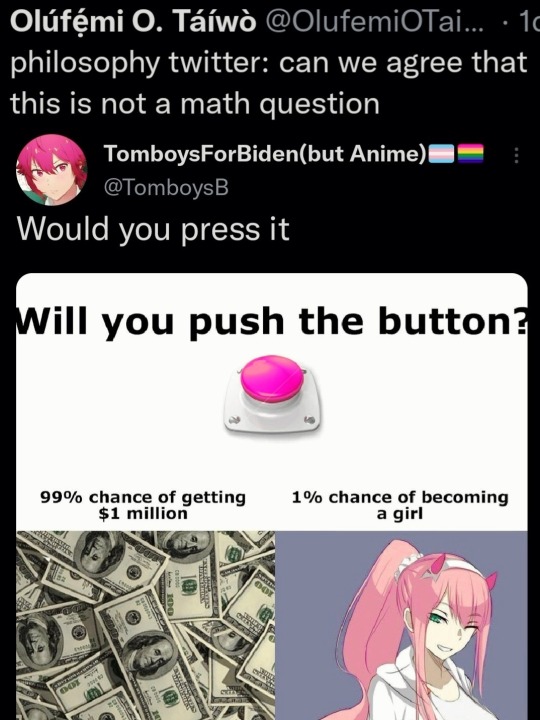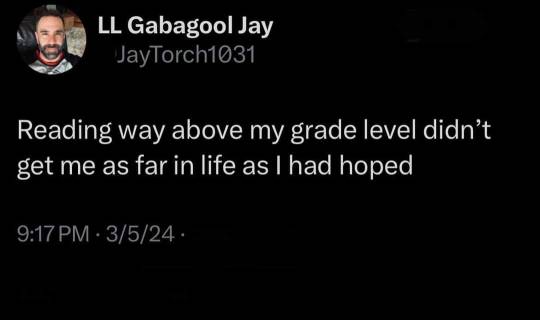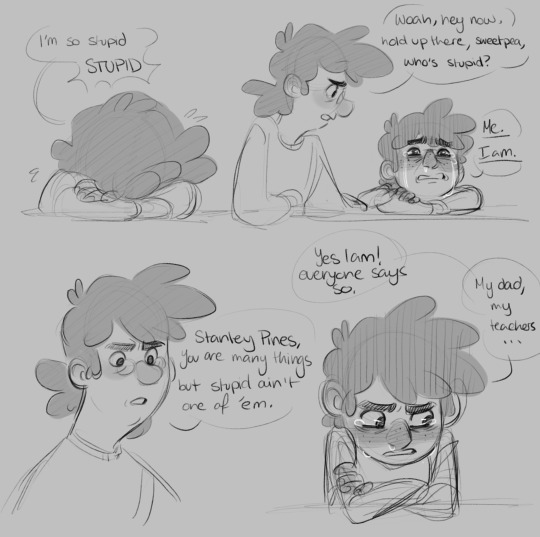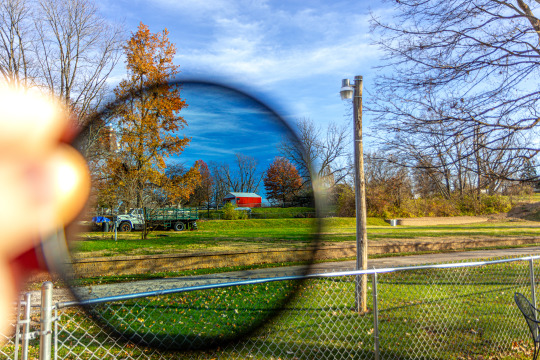#mathed
Explore tagged Tumblr posts
Text
Personal Reflection on Gamifying Apps as an Assessment Tool in Mathematics Education🎮
When reflecting on gamifying applications I regularly use in my mathematics classes such as Kahoot, Hot Potato, Quizizz, Educaplay, and Google Forms, it becomes evident that each tool brings its own set of merits and demerits to the table.
Kahoot 🎮, for instance, offers an engaging platform for interactive quizzes that truly energize the classroom atmosphere. However, its limitations become apparent when it comes to writing equations or dealing with more complex mathematical concepts like matrices. This can sometimes hinder the depth of learning that I aim for in my lessons.
Hot Potato 🥔, with its feature for uploading photos, adds an interactive element to the learning process, which my students love. Yet, the process of sending zip folders with image paths and having students unzip files can prove challenging, especially for younger learners who may not be as tech-savvy.
Quizizz 📝 has been a game-changer in terms of collaborative learning opportunities. Its open accessibility to other teachers' games on the same topic has sparked engaging discussions and peer learning in my classroom. However, its inability to support fill-in-the-blank questions limits its versatility in assessing students' understanding comprehensively.
Educaplay 🎓 has also proven to be a captivating tool with its variety of interactive exercises and games tailored to mathematics learning. Nevertheless, it falls short when it comes to writing equations compared to Kahoot. Kahoot's more advanced equation creation features give it an edge in this aspect.
In essence, while each gamifying application offers unique advantages, they also come with their own limitations. As educators, it's crucial for us to weigh these pros and cons carefully and choose the right tool based on the specific learning objectives and needs of our students. Finding the balance between engagement and functionality is key to creating meaningful and effective learning experiences in the mathematics classroom. 🧠📚
2 notes
·
View notes
Text
why qualitative research matters to teaching (mathematics)


the pioneer cohort of ed.d. and ph.d. educ at ateneo gbseald with dr. ma. assunta "achoot" cuyegkeng / screengrabs from markkie aribon and lavi subang of ed.d.
-----
i told the internet about why i am where i am now in a previous post. now, i am ready to share what invaluable knowledge i've got from one of my courses so far.
during my undergrad and graduate studies, just pen and paper is mostly sufficient to create new ideas, problems, and solutions, and do research in math, but that's not the only concern i have with life and work.
for the past half a decade or so, peers and i saw a decline in the perceived quality of students in calculus at the university of the philippines los banos. what was supposed to be tackled in senior high school, like algebra, trigonometry, and precalculus especially for those from stem track, wasn't adequately done so. when introduced to fundamental calculus concepts, they do understand the notion of limit, how lines and derivatives intertwine and entangle, and why area is an integral, but when it comes to crafting solutions and answering problems, this inadequacy becomes apparent.
in turn, it becomes necessary for us to ask why this is the case? how do teachers influence their students' calculus learning and what are they doing to adapt? has existing policies done us (dis)service in the philippine (math) education? and, why is everybody and nobody at fault here?
just thinking about possible solutions is not enough. we need to get our hands dirty, wreck some established norms, and possibly hurt some feelings in the process. qualitative research, i learned, has some of the answers.
as i mentioned in a previous post,

for this course, i posed this question: how do teachers facilitate collegiate calculus learning through creative interventions?
in an attempt to answer this question, i had to look back at what is happening and what research tells us about calculus learning.
for one, most mathematics learning theories are based on existing ones from classical learning theories, like constructivism, positivism, and behaviorism. since the start of the 21st century, one of the main motivations of mathematics education research is rationalizing a theory for mathematics in consideration of its unique nature as a subject matter.
next comes becoming aware of challenges and factors in teaching and learning calculus, how do teachers intervene, and how important their role is.
as of yet, i think the question can't be answered by a simple survey, answered using a likert scale. we have to go on the ground and diligently ask calculus teachers and instructors in college the existing literature still resonate with the challenges they face and what they do about them in order to help their students. the quality of administration and prestige of the institutions they serve affect their students, but in reality, educators are at the frontline facing the students and implementing interventions as they go along day by day. their experience is a vital part of understanding the problem.
we should break down such a complex question into easily digestible and directly answerable ones that help us understand sac (structures-agency-culture): ask where the teachers come from, what kind of pool do they dive in to teach calculus, what restrictions they are put in, what the students are like, what they do to help the children [sic], and in what way do their interventions affect the students.
with the pisa results just released, now more than ever, we need to act as fast as we can to implement changes from the ground up.
why are we, everyone at school, so miserable in one way or another? this, i can definitely say, is my magnum opus.
i will die on this hill.
4 notes
·
View notes
Text
not to be a number nerd on main but 2025 (45^2) will be the only square year most of us ever experience. the last one was 1936 and the next one will be 2116
82K notes
·
View notes
Text

#philosophy#math#the button#how many times can i press#I'd give the money back#let's say half of it#rich girl#trans#transfem#196#r196#mtf
103K notes
·
View notes
Text
Reblogging would be a great help, but don’t feel pressured to
48K notes
·
View notes
Text

being an adult means I can use my big boy money (which is supposed to go towards stupid things like rent or food but who the hell does that) to force people to look at Melly.
look at her. she’s simply so Shaped
#this pic is what led me to start calling her an avocado#apparently she weighs around 7 avocados according to my friend#(who is a math major)#Melly Bo Belly#catblr#cats of tumblr#tuxedo cat
11K notes
·
View notes
Text

46K notes
·
View notes
Text
"average cat owner spends 3 years in prison" factoid actualy just statistical error. average owner spends 0 years in prison. Miette's mother, who kicked her body like the football and went to jail for One Thousand Years is an outlier adn should not have been counted
#miette#spiders georg#tumblrstuff#meme#1k#One Thousand Notes#oh! oh!#I swear I can math in real life#10k#tumblr is insane#is this post making the miette tag trend#20k#I know there are more than 333 cat owners#It was a small sample size#40k#50k#75k#100k#150k
182K notes
·
View notes
Text

17K notes
·
View notes
Text
Someone passed me a note in my math class and when I opened it it was a drawing of a hare. The hare looked at me and said, “The mountains have roots. They want the sky back.” And then the ink seeped through the paper until I was holding a completely black and soaked note.
19K notes
·
View notes
Note
Sorry to be that person, but "girl math" doesn't mean "girls are bad at math". It's a way of saying "how many women use math irl"
Like "If I get hit with armor, it doesn't count because my health remains the same"
Or "I returned $30 and spent $5, that's a net positive, so I basically got this for free"
Not that girls literally don't understand math and don't get that things cost money. It's a simplification of thought processes and analysis, actually implying high-level thinking, not "girls are so bad at math we don't even try"
I know, it's not that serious, but taken out of context it sounds worse than it is.
ohhhhhhhh my god you cannot make“teehee girls just use a different kind of math around shopping to justify buying more stuff cause they’re girls using girl math” into a feminist statement it IS an actual problem to ascribe not only gender (woman) but childishness (girl) to poor financial literacy and say that the kind of math girls do is actually exclusively related to the domestic sphere when we talk about shopping or buying food or presents or little treats. Do you fucking hear yourself
#this is why I am an unrepentant rude bitch whenever I hear someone joke about girl math because it’s not funny actually#you think I’m going to sit there and let my teenage girls say this about themselves?
8K notes
·
View notes
Text



I am once again back with my Stan Pines is smart agenda
#I was NOT vibing with this brush today goodness gracious#anyways everyone say thank you to uncle fidds for teaching Stan the math he didn’t think he could do <3#my art#gravity falls#twins in time au#Stan pines#stanley pines#fiddleford hadron mcgucket#fiddleford mcgucket
14K notes
·
View notes
Text
if a number divided by itself is always equal to 1, surely this holds true for 0/0 as well
10K notes
·
View notes
Text
Photographers all know about polarizing filters. They remove reflections off the surfaces of objects. We use them to see into water or windows that are obscured by those reflections. But anything with an even slightly glossy surface has a layer of reflection on top. So if you have a shiny green plant, it can remove the shiny and reveal a very saturated green underneath. Polarizers also remove a lot of scattered and reflected light from the sky. Which reveals a deep blue color you didn't even know was there.
Here is a photo I took of my circular polarizer.

And the first thing I noticed when walking outside during the eclipse was the color of everything was more saturated, just like in that circle. Apparently, an eclipse significantly reduces polarized light and I got this creepy feeling because I was only ever used to seeing the world like that through the viewfinder of my camera.
The other thing I noticed was my outdoor lights. I leave them on all the time because I never remember to turn them on at night. And usually the sun will render them barely visible during the day. On a very sunny day they almost look like they are off.

But you can clearly see they are shining and even flaring the camera during the eclipse.
Our eyes adjust to lighting changes very well so it was hard to tell how much dimmer things were, but that is a good indication. I took this photo a few minutes ago and you can see how dim the lights appear after the moon has fucked off.

I did a calculation using the exposure settings between these two photos. The non-eclipse photo has 7 f-stops more light. That is 128 times or 12,700% more light.
A partial Pringle eclipse cut the sun's light by 99.2% and somehow our eyes adjusted to make it seem like a normal sunny day (with weird ass saturated colors).
20K notes
·
View notes
Note
Did you see that Magic: the Gathering now has a game state in which you need to prove that there are an infinite number of twin primes to win? I can explain it more if you are interested.
(With reference to this post here.)
By all means, please tell us about the Magic: the Gathering combo which requires proving the twin prime conjecture in order to win.
10K notes
·
View notes